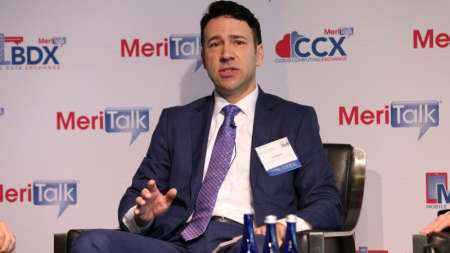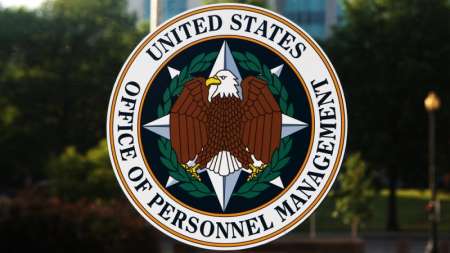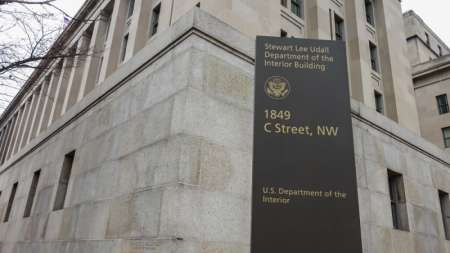Password manager company, Dashlane, has added a twist with its list of the “Worst Password Offenders” of 2017, naming high-profile people and organizations that fell into the bad-password trap. President Trump was deemed the worst offender, primarily because of simple passwords reportedly used by cabinet members and policy directors. Outside parties were also the culprits for the Department of Defense, specifically for its contractor, Booz Allen, as well as the Republican Party (stemming from a careless data analytics firm). Paul Manafort, for using “Bond007” as a password, and Sean Spicer, for apparently tweeting his passwords, also came in for scorn. […]
Email is a core network application for both the private sector the and government, and has become an essential business communication tool. Since email is nearly ubiquitous and often poorly secured, it also has become a vector for fraud and data theft. Phishing emails can compromise not only Federal networks and databases, but also trust in government communications. […]
Last July, the Federal Risk and Authorization Management Program (FedRAMP) revamped the provisional authorization process to make life easier for cloud service providers (CSPs). The change let CSPs use a simple web form to delineate their business cases to FedRAMP’s Joint Authorization Board (JAB). […]
In a report released on Dec. 7, the Government Accountability Office (GAO) reported that while Veterans Affairs (VA) has made some progress on key IT initiatives under Federal Information Technology Acquisition Reform Act (FITARA) requirements, it has nonetheless fallen short of Office of Management and Budget (OMB) targets regarding consolidating and optimizing its data centers. […]
The White House wants to clear the way for Federal agencies to adopt commercial cloud computing, even if that means tweaking acquisition rules to help them get there. […]
Since 2001, the Department of Veterans Affairs (VA) has tried three different modernization programs for its healthcare system. So when the department announced another plan to modernize by adopting the same system as the Department of Defense (DoD), the Subcommittee on Information Technology was skeptical and interrogated them in a Dec.7 hearing. […]
Bruce Greenstein, Department of Health and Human Services (HHS) CTO knows Feds need help combating the Opioid crisis. That’s why HHS convened the Opioid Symposium last week at the Hubert H. Humphrey Building, bringing Federal, state and industry players together to brainstorm on one of the nation’s toughest issues. Fourteen sessions later, and sharing data, innovating, communicating, and remembering the human impacts emerged as the key takeaways. […]
In the seven years since it was launched, the General Services Administration’s (GSA) Challenge.gov platform has demonstrated that crowdsourcing can be a winning approach to problem solving in government. […]
The National Institute of Standard and Technology (NIST) released the second draft of the proposed update to its Framework for Improving Critical Infrastructure Cybersecurity. The new draft aims to clarify, refine, and enhance the framework as well as “amplifying its value and making it easier to use,” NIST officials said. […]
With rapid growth in smart devices, exploding data volumes, and the shift to the cloud, it is becoming more and more challenging to protect critical systems and information. Government and industry leaders convened at the Symantec Government Symposium in Washington, D.C. on Tuesday to discuss these complex challenges and the solutions needed to address them. […]
The Centers for Medicare and Medicaid Services (CMS) need to more fully align its antifraud efforts with the Government Accountability Office’s (GAO) Fraud Risk Framework, GAO auditors said in a report released Dec. 5. CMS’s anti-fraud programs currently align only partially with the risk framework, GAO’s investigation revealed. […]
SBA has made it a priority to provide cybersecurity assistance for small businesses, reaching out to local chambers of commerce, technology vendors, and banks that serve small businesses to raise awareness of the benefits of cybersecurity threat prevention sharing through conferences. […]
After years of fits and starts on a much-needed electronic filing system, the Justice Department’s Executive Office for Immigration Review (EOIR) is “poised” to deploy a comprehensive, cloud-based e-file platform next year to help reduce a massive backlog of cases, a top EOIR official said recently. […]
Secretary of State Rex Tillerson spoke frankly about the need IT modernization in the State Department last week, both referencing his personal experiences with the department’s servers and tying it into a larger need for reorganization in the department, but failing to lay out any concrete plan for the changes. […]
For enterprise IT teams seeking ways to deliver on-premises IT services with the speed and operational efficiency of public cloud services, the General Services Administration (GSA) announced the availability of the Nutanix’s Hyperconverged Cloud Infrastructure (HCI) platform to agencies. […]
The recently launched General Services Administration (GSA) SmartPay Travel Card app is designed to take some of the worry out of official government travel, GSA officials said. […]
How far can we push the limits of computing power? That is a question that scientists at the National Institute of Technology and Standards (NIST) are pondering. […]
The Department of Veterans Affairs (VA) is piloting a new telehealth program that uses tablets and the cloud to help veterans recover faster than before. The new program is specifically targeting non-healing wounds, which costs the U.S. $50 billion per year in healthcare expenses. […]
The Federal CIO Council recently released a case study focusing on Technology Business Management (TBM) adoption rates at a single bureau within the Department of Justice (DOJ). The study will be used as part of the council’s commitment to guide agency-wide adoption of TBM. […]
MeriTalk compiles a weekly roundup of contracts and other industry activity. Here’s what happened this week in the Federal Information Technology community. […]
The GSA is concerned that current cloud procurement methods are leading to confusion and a lack compliance with FedRAMP requirements. To curb the contract discrepancies, the GSA released a new RFI seeking industry input to “identify examples of preferred contract language agencies should incorporate to convey FedRAMP requirements in their solicitations,” according to a FedRAMP blog. […]
Yesterday, the House Foreign Affairs Committee passed the Cyber Diplomacy Act, clearing the path for a new cyber ambassador. If signed into law, the act would establish an Office of Cyber Issues within the State Department and give the office’s head the status and rank of an ambassador. […]
In honor of National Veterans and Military Families Month, the Department of Veterans Affairs’ National Cemetery Administration (NCA) is recommitting itself to its mission to “memorialize veterans in perpetuity.” The NCA is turning to crowdsourcing to revamp its outdated Nationwide Gravesite Locator, a web portal that allows users to access burial information for cemeteries across the […]
The Department of Health and Human Services is looking for ways to combat stovepiped systems by using shared services across the agency for data management. “For us, data is front and center,” said Ed Simcox, deputy chief technology officer at HHS. […]
The Office of Personnel Management released the Federal Human Capital Business Reference Model (HCBRM), a tool that establishes a common human resource (HR) experience for Federal employees across agencies. The HCBRM provides a simplified view of operational functions and policy ownership and a common structure intended to align HR operations, finance, and acquisition. […]
The Government Accountability Office found that 62 percent of major information technology software development investments were certified by the agency chief information officer for using adequate incremental development in fiscal year 2017. However, a number of responses for the remaining investments were incorrectly reported due to agency error. […]
The Inspector General for the Department of the Interior assessed the information that the agency submitted under the DATA Act, and found that some of the data was incomplete or inaccurate. The report noted “deficiencies in completeness, timeliness, quality, and accuracy of the data submissions we sampled.” […]
The innovations of the Internet of Things can only improve health care in rural America once there is complete broadband access and adoption. “The benefits of telehealth are not available to patients without access to high-speed Internet across America. As technology and health care services expand to meet patients where they live, broadband coverage must improve to make this care accessible,” Michael Adcock, executive director of the Telehealth Center University of Mississippi Medical Center, told the Senate Commerce, Science, and Transportation Committee. […]
In the event of a cyberattack, it’s important for information about the attack to be shared with the public in order to prevent further problems. Jeanette Manfra, assistant secretary for the Office of Cybersecurity and Communications at the Department of Homeland Security, said that the agency shares timely, accurate information with its partners and constituents so that they can take proper action to protect themselves. […]
The May Cybersecurity Executive Order and the White House’s IT Modernization Report have encouraged agencies to look for ways to use shared services to improve cybersecurity. The Department of Justice has been looking into using shared services before the push from the White House, giving the agency a head start at shared services centered on cybersecurity for the enterprise. […]




























